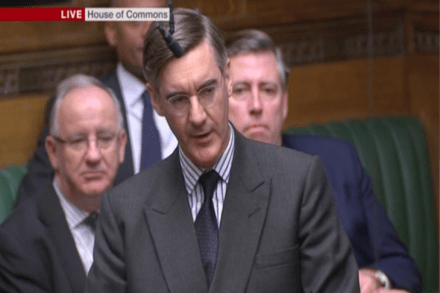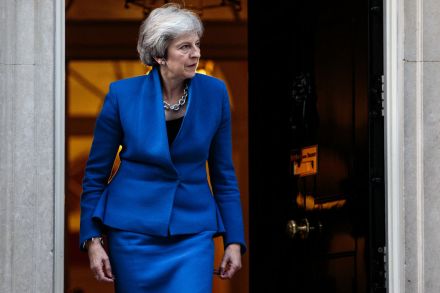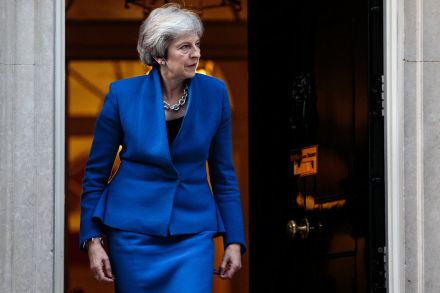Watch: Jacob Rees-Mogg’s withering verdict on May’s Brexit deal
Only a handful of MPs have spoken up in support of Theresa May’s Brexit deal in the Commons. But the criticism from a certain Tory backbencher will worry her more than most. Jacob Rees-Mogg took to his feet in the Commons to ask why he shouldn’t now hand in a letter of no confidence in the Prime Minister. Here’s what he said: ‘My right honourable friend – and she is unquestionably honourable – said we would leave the customs union. Annex two says otherwise. My right honourable friend said that she would maintain the integrity of the United Kingdom. A whole protocol says otherwise. My right honourable friend said that





















